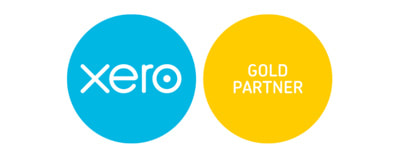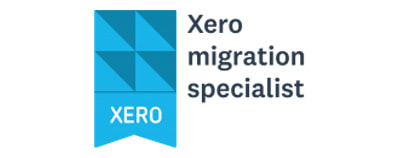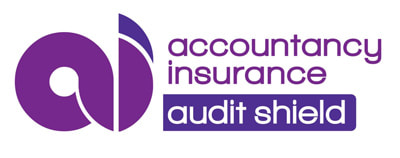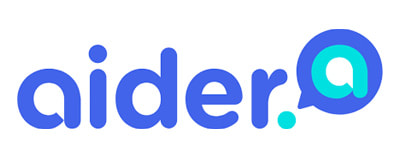Current NewsletterWe have put together another informative newsletter for you which includes information about many New Zealand tax and business matters including:
CLIENT PORTAL COMING SOON!Exciting announcement! We're thrilled to unveil that we are working on an exclusive client log-in portal designed specifically for our valued customers. By registering, you'll gain free access to an exceptional array of financial insights, tax strategies, industry best practices, and a wealth of other invaluable resources, including:
When this is live we will let you know how to access it. END OF TAX YEAR TIMEWe're reaching the end of the tax year so it's time to get ready with your filing. To help you out we have attached our updated client questionnaire for both current and prospective clients. You won't have to worry about the preparation of your 2023 annual tax return when you download, fill out, and email the necessary documents to our team. OTHER TAX NEWS In our quarterly newsletter we have put together a collection of articles about many tax and business matters including:
Download the full newsletter below. TAX POOLING PARTNERSHIPExciting News! We have partnered with PWC Tax Pooling Solutions to assist our clients with their cash flows. Refer to the tax pooling information at the end of the newsletter above for more details.
In our December Newsletter we teach you about all the tax news and updates you need to know as a business owner in New Zealand. These include: Provisional taxesLearn more about provisional taxes and payment due dates for 2023. What are the available payment arrangements, and how can you set set them up? Goals for 2023Identify the tips and tricks on how to handle cash flows. This about getting business coaching to discuss business profitability. Xero TrainingLet us know what you want to learn. We offer Xero training to help you and your business. Christmas ExpensesIt's the holiday season, and it's time for the annual Christmas work party, gift giving, cash bonuses, and more. But do you know which entertainment expenses you can deduct for your business, and which may be subject to Fringe Benefit Tax (FBT)? Our December newsletter has details about all these topics and much more too!
Tax relief for businesses hit by severe July weatherThe Government has made an Order in Council declaring the series of adverse weather fronts that crossed New Zealand between 11 July and 31 July 2022 to be an emergency event and allows Inland Revenue to waive interest charges on late payments of tax for business affected by that emergency event. The Tax Administration (July Adverse Weather Event) Order 2022 allows Inland Revenue to waive use of money interest for late payment of taxes. The emergency event applies to people whose businesses in the districts of Canterbury, Gisborne, Northland, Otago, and Wairoa have been affected by floods, damaging high winds, and disruption to infrastructure. The Order is now in effect and will expire on 30 September 2022. Businesses affected by the floods are urged to contact their tax agent if they would like to take advantage of the interest remission measure. Taxpayers will be able to apply to have late payment interest waived once they have filed their returns and paid due taxes. Different rules apply in cases of financial hardship. Provisional Tax DUE SOONProvisional tax is due on August 28, 2022. Provisional tax helps you manage your income tax. You pay it in instalments during the year instead of a lump sum at the end of the year. You'll have to pay provisional tax if you had to pay more than $5,000 tax at the end of the year from your last return. It's payable the following year after your tax return. For example, if your residual income tax from your 2022 return is more than $5,000, then you'll need to pay provisional tax during the 2023 tax year. Provisional taxpayers often earn:
There are some situations where you may need to pay provisional tax on your reportable income. Reportable income is income information that Inland Revenue receives regularly from a third party (e.g. an employer, a bank, etc) for an individual and a tax year. This includes:
These can be due to:
Please budget for your August 28, 2022 Provisional tax. Calculating YOUR Charge out rateIn order to calculate an accurate charge out rate there are many factors you need to take into account. From your target income to the amount of hours you can manage ANZ has all the tips and tricks. INFLATION RATE - NOW 7.3%The consumers price index (CPI) is a measure of inflation for New Zealand households. It records changes in the price of goods and services. It influences interest rates and is used to calculate changes to benefit payments.
Calculating the breakeven point is a key financial analysis tool used by business owners.
Once you know the fixed and variable costs for the product your business produces or a good approximation of them, you can use that information to calculate your company's breakeven point. Small business owners can use the calculation to determine how many product units they need to sell at a given price point to break even. The Breakeven Point A company's breakeven point is the point at which its sales exactly cover its expenses. To compute a company's breakeven point in sales volume, you need to know the values of three variables:
How to Calculate Breakeven Point In order to calculate your company's breakeven point, use the following formula: Fixed Costs ÷ (Price - Variable Costs) = Breakeven Point in Units In other words, the breakeven point is equal to the total fixed costs divided by the difference between the unit price and variable costs. Note that in this formula, fixed costs are stated as a total of all overhead for the firm, whereas Price and Variable Costs are stated as per unit costs—the price for each product unit sold. The denominator of the equation, price minus variable costs, is called the contribution margin. After unit variable costs are deducted from the price, whatever is left—the contribution margin—is available to pay the company's fixed costs. Your credit record is an important part of your financial fingerprint in New Zealand and can affect how companies treat you, for example when you want to borrow money or get insurance. This month we talk about checking and correcting your own credit report. HOW DO YOU CHECK YOUR CREDIT RECORD?You can check your credit information for free, but if you want the information in a hurry you have to pay for a report. The New Zealand government links to the main credit reporting companies in NZ. HOW DO YOU CORRECT YOUR CREDIT REPORT?Credit reporters must take reasonable steps to ensure the information they hold is accurate, and promptly correct any errors they become aware of.
If you tell a credit reporter that your report contains an inaccuracy, the credit reporter must, if appropriate, take steps to correct it. They will usually check the information you provide with the source − for example, the credit provider who submitted a default. Learn more about how to do this on the New Zealand Privacy Commissioner website. COVID-19 Payment reviewThe Inland Revenue have nearly completed the applications for the COVID-19 Support Payment and are now reviewing the accounts of a sample of their customers who received one or more of the following:
The review is to make sure customers met the relevant eligibility criteria and have used the payments in line with the terms and conditions. If the IRD find you were ineligible or have not used the payments in line with the terms and conditions, they may act to recover these. To check the eligibility criteria visit the website by clicking the link. The message here is to ensure to send your expenses reconciliation to your accountant. Hidden Economy real estate campaignInland Revenue started the campaign because a number of real estate agents appeared to be:
The message here is do not claim personal expenses and common errors that real estate agents make. If you have questions about any of these issues please do not hesitate to get in touch with us here at Apex Accountancy.
Managing Your Cash Flow
They often say cash flow is king and well there quite right. It’s nice to have profit but cash flow is what will make or break your business. With the Pandemic causing chaos in the business world managing your cash flow is now more important than ever. First off, cashflow often gets confused for profit, yet it’s a little bit different. Profit – cash left over once your expenses from your sales revenue has been taken out. Cashflow – Cash that flows in and out of your business and not into your pocket. Cash flow is used to cover your expenses, both current and future. It’s what grows your business. What’s the secret to managing your cashflow? Books – Make sure your records are up to date. Record all your cash flow information regularly. This is a big must as you need to know if you have more expenses than income or if you have enough cashflow happening to buy supplies. Setting up your bookkeeping and taking care of it regularly means you can check your not only your cash flow but your complete financial state at any time. Cash flow forecast – Sounds intimidating I know. Simply put this an estimation of the amount of money you expect to flow in and out of your business. By forecasting your cash flow you have the chance to identify any potential or current issues before they turn into major ones. What a forecast can tell you:
Don’t Forget the Tax Man – Tax sneaks up on you if you are not prepared. Make sure you work this into your forecast.
Customers - Useful to have for every business. Invoices, a necessary customer payment prompt. Having a strategy will help make creating and sending invoices easier. Set up a system that works for you. How? Here are a few pointers:
Keep it separate – Don’t mix your personal and business finances together. Tempting I know. This will make it much harder to work out what your cash flow is. Also gives you a false cash flow forecast. Set up your pay properly so you can pay yourself, any excess cash can then be identified easier and used to grow your business. Set up a cash reserve - Is there a certain time of year where you struggle to pay bills? Save for that rainy day. Start building up a cash reserve now, so you're prepared. Yes, it may mean cutting back a bit for now on what you may pay yourself, but it will be worth it to have that cash reserve. Bonus too, if any unexpected events arise, for example COVID, you will have a little bit of cash to help you out. Plus watching the cash reserve grow will help build your confidence and strengthen finances. Need an extra hand? Business stuff can be complex, so if in doubt ask us for help that’s why we’re here. Employers and employees need to work together to protect New Zealand and keep each other safe during the global COVID-19 pandemic. This means that normal obligations to keep in regular contact and to act in good faith are more important than ever. Regular employment law still applies to all employment relationships – regardless of the circumstances that we find ourselves in. This includes:
When COVID-19 traffic light settings change, employers and employees should first discuss whether the employee can work normally, how much work is available, and how to work safely at home or at their usual place of work. If the employee cannot work normally (e.g. their normal number of hours), the employer and employee should discuss what options are available. This page outlines some of those options. Employee entitlements to leave and pay It can be difficult to navigate a complex and rapidly changing situation such as with COVID-19. One of the key challenges is working out employee entitlements to leave when the worker cannot go to the workplace or work from home. If a worker is sick with COVID-19, or required to self-isolate under Ministry of Health guidelines for COVID-19, the first consideration for an employer should be to look after people, contain COVID-19 and protect public health. Employers should not require or knowingly allow workers to come to a workplace when they are sick with COVID-19 or required to self-isolate (as a suspected case, a close contact, or on return from overseas) under public health guidelines for COVID-19. If they do, they are likely to be in breach of their duties under the Health and Safety at Work Act. The following table provides guidance to employers and employees about these entitlements. In all options in this table, the employer and employee should seek first to reach agreement in good faith on what approach will be taken.
* If the employer is receiving a wage subsidy or Leave Support Scheme payment, all named employees must receive a minimum payment depending on their circumstances. For employment advice , talk to your employment lawyer.
There are many options set out in this table and the implications of those options may vary depending on people’s individual circumstances. Parties are strongly encouraged to seek advice to ensure that the options chosen are the best options in the circumstances available. Contractors and self-employed people Contractor arrangements are not covered by this guidance. Businesses and contractors can agree to any payment arrangements they wish to. This article has been extracted from the Employment Law website. For more information please click here. Xmas time! Time to dust off that Xmas Tree and deck the halls for that end of year Xmas work party.
Stock up on those employer Xmas gift hampers!! Woah, hold up, before you get too excited with the festive season, do you know what entertainment expenses and Xmas gifts you can claim back on, and which ones may incur FBT. There are 3 main types of entertainment expenses that your Xmas staff party, employee gift hamper and even client gifts can fall into. |
Archives
May 2024
Categories
All
|
OUR PARTNERS
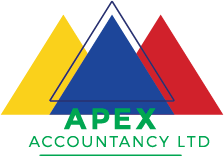
 RSS Feed
RSS Feed
